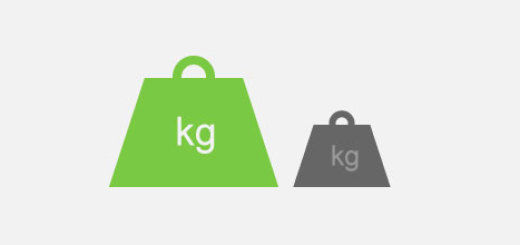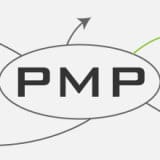Content SEO Strategies
Summary: Content is king. With the ever-changing algorithms of search engines aiming to crack down black hat SEO techniques, content is considered even more important. This post details the dos and don’ts to be considered when planning and writing website contents in such a way that search engines will recognize as quality contents.
With the increase in the sophistication of search engine algorithms and widespread adoption of SEO knowledge, claiming the number 1 place in search engine result page with a few black hat SEO techniques has long been a bygone. Search engine bots are even intelligent enough to detect black hat tricks and give heavy penalties including demotion or even removal from the search results.
Assuming technical SEO is done right, there is only 1 surefire way to do SEO that search engine loves – to publish quality contents.
Article Highlights
Dos
- Give each page a unique and to-the-point title
Don’t leave the <title> tag in the <head> section blank. Include all the necessary information (including some keywords) in the <title> tag. By adding a Chinese keyword to the page title, I have once helped a page to jump from 100+ to the first search result page in a week in Google Hong Kong. - Give each page a unique and to-the-point meta description or just remove it
Put a concise summary for the the page in content part of the<meta name="description" content="...">tag. This may be used by the search engines to display as a summary of your page on the search engine result page. However, Google recommends that it is better to remove the meta description than having more than 1 pages bearing identical description. - Give some thoughts about the URL
You may treat the URL as a sentence. Examples such as http://edward-designer.com/masters/SEO and http://edward-designer.com/does/SEM will bring the attention of the views. In the end, you want to attract real viewers, not just the search engine bots. - Use keywords in anchor texts
Anchor texts are the hyper-linked words/phrases on the page. Instead of ‘click here to download’, choose some more descriptive words like ‘get your Top 5 basic SEO tips’. - Bold and/or italic important words/phrases within the passage
<strong>…</strong> and <em>…</em> tags will send the signal to search engine bots that the words/phrases enclosed are more important than the rest. Search engines will probably rank the page higher for these words/phrases. - Be localized
If you operate a brick and mortar business, register it in the Google Places for Business will help your ranking in local search. Also if your local search engine provides a choice of language for the search results, do prepare your site and contents for all the languages [though if no suitable sites in the chosen language are found, Google will still display your site in the other language, however, your site will be ranked much lower]. For example, in Hong Kong, Google provides the choice of Traditional Chinese, Simplified Chinese and English with the default as Traditional Chinese. If you want to rank well for Google in Hong Kong, you must provide at least two language versions of your site, namely, Traditional Chinese and English. - Set up a what’s new page and/or blog
Search engines love new contents. With the frequently updated what’s new page and/or blog, search engines will consider your site up-to-date which will benefit your ranking. Every time when the search engine bots come back to your site and discover something new, they are going to think: ‘well, this site is well maintained and is still releveant’. More contents will also allow your site to appear in search results of more keywords. - Write in-depth articles / blog posts
Write quality posts of at least 2000 words (if feasible) with proper schema markup. You may refer to this article for more details on the technical parts. Google is will include your blogs in the result as in-depth articles (i.e. long articles with at least 2000 words). You may refer Discover great in-depth articles on Google. - Write titles people love to share
Social network activity is fast becoming a very important factor for search engine rankings. The more your page appear in social network sharing, the higher you page will go in the search engine result page. Upworthy beats all others in this area. Upworthy does not produce contents itself, but rather, it try to write intriguing titles and summaries for contents produced by others. For example: “You Won’t Believe What The Chinese Government Did To These 26 Million Children” links to a video about the government providing free lunches for impoverished school children. A lesson to learn here is that you may publish your content with ‘normal’ titles in your corporate site and share the same contents in social networks with interesting titles that people love to share. - Use alternate forms of the keywords
Search engines actively look for signs of over-optimization. A high density of the same keyword will look suspicious which can harm your ranking. Your passage will look boring too with the same words repeating again and again. Actually, search engines are intelligent enough to understand the alternate forms of the keywords. - Write naturally
Most important of all, write for real humans. Not for search engine bots! Quality and relevance are important criteria for search engines to rank a website. Search engine algorithms are ever evolving to give the most relevant search results to the users. Any black hat tricks which may trick the search engine bots for a while will eventually doom to failure and penalties. - Use of multi-media materials
Offering press releases, e-books, Powerpoint slides (hosted on Slideshare) and videos (hosted on Youtube or Viemo) will greatly enhance your likelihood for the contents to be indexed and displayed in search results. Videos hosted on Youtube with title an exact match of the keywords will often display in the first few pages of the search result page. This is a underused technique in SEO. - Maintain a vibrant digital footprint for the Website/Website Owner
Do sign up your business/personal account for major web services (Facebook, Twitter, LinkedIn, Google+, Youtube, etc. ) and do the following [better with emphases on topics related to the website itself]: share articles and news, connect with others, be guest bloggers, leave comments, lead discussions… This will help building up the brand of the owner and the website which search engines love. - Check if your content is being copied
Web services like copyscape can help you to check whether your content is copied by other sites and vice versa.This would help you to reduce the chance of being penalized by the search engines for duplicated contents.Update: Google has made it clear that duplicate contents won’t be penalized, Google will group all pages with same contents and just show the best one to the search results. If you can make sure your content is of the highest value, it won’t be a matter to Google if your content is being copied. Of course, you might want to make sure your hard work won’t be stolen by copy and paste.
Don’ts
- Stuff keywords in the meta keyword tag
Gone are the days when the meta keyword tags are evaluated by search engine bots. Google has made this clear in a blog article Google does not use the keywords meta tag in web ranking. Though Google will not penalize on the use of meta keyword tags, your competitors will thank you for exposing your keyword strategies.





 Hi, my name is Edward Chung, PMP, PMI-ACP®, ITIL® Foundation. Like most of us, I am a working professional pursuing career advancements through Certifications. As I am having a full-time job and a family with 3 kids, I need to pursue professional certifications in the most effective way (i.e. with the least amount of time). I share my exam tips here in the hope of helping fellow Certification aspirants!
Hi, my name is Edward Chung, PMP, PMI-ACP®, ITIL® Foundation. Like most of us, I am a working professional pursuing career advancements through Certifications. As I am having a full-time job and a family with 3 kids, I need to pursue professional certifications in the most effective way (i.e. with the least amount of time). I share my exam tips here in the hope of helping fellow Certification aspirants!





